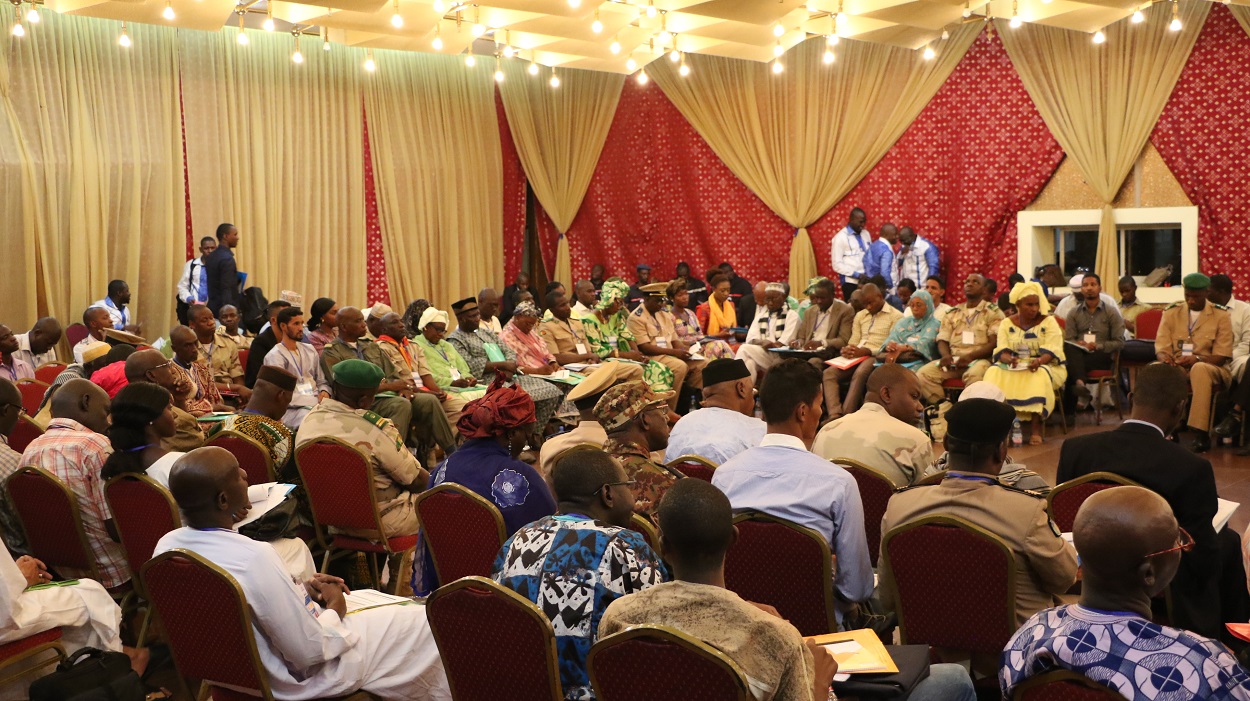A major step on the route to sustainable peace in Mali

From 3 to 5 May 2016, representatives from all regions of Mali and refugee camps in Mauritania and Niger gathered in Bamako at the 2nd National Conference on “Chronic insecurity, the evolution of values: proposed solutions to lasting peace in Mali.” These two challenges were identified by Malians as the main obstacles to peace. They were identified as a priority by the participants of the 1st National Conference held in Bamako in January 2015.
Organized by Interpeace and its partner in Mali, the Institut Malien de Recherche Action Pour la Paix (IMRAP), and chaired by the Secretary-General of the Ministry of National Reconciliation, the 2nd National Conference is a key step along the peacebuilding process. It strove to include representation from all Malian social backgrounds; beyond societal fault lines. As strikingly expressed by a participant, “all Malians were involved in this process, and that guarantees the legitimacy of the solutions to be decided here.”
For a large number of Malians, changes in societal values represent the root of cause of many tensions and conflicts which afflict Mali today. In their eyes, ignorance of the socio-cultural and economic realities between regions and communities has widened due to a lack of opportunities for encounters and dialogue. Accordingly, participants at the 2nd National Conference strongly emphasized the need to create a broad dialogue, at all levels, in order to establish a consensus on these values and, ultimately, determine the Malian social contract. As such, the proposed solutions adopted by the Malian populations represented at the conference, in order of priority, were the following:
• Strengthen the culture of dialogue for social cohesion;
• Promote citizenship education to strengthen patriotism;
• Organize major cultural encounters to promote mutual awareness and understanding.
The conference also tackled the second main challenge identified by Malians: chronic insecurity, and more precisely, the crisis of trust between the populations and the state’s Security and Defence forces (DSF). Indeed, for Malians, current major investments in equipment and training for DSF, as needed as they might be, will not ensure people’s security as long as minimal trust and collaboration with populations is not ensured. To face this challenge, participants at the conference, civilians and DSF alike, emphasized the importance of dialogue between and among themselves. In that respect, the prioritised solutions were the following:
• Develop a common and shared understanding of DSF’s and populations’ respective roles and responsibilities;
• Adapt the capacities of DSF to the current evolving security context;
• Ensure the concerted management of the security sector;
• Ensure a transparent recruitment process that is both fair and effective.
At the end of the Conference, the participants strongly agreed to participate in the implementation of the prioritised solutions – together with the support of Interpeace and IMRAP. Before concluding by stating his intention to channel Malians’ voices toward the National authorities, a high member of the National Truth, Justice and Reconciliation Commission (CVJR) claimed: “we need to ensure inclusivity to find solutions to what is hitting us, to the crisis. […] I believe IMRAP is showing us the way.”























